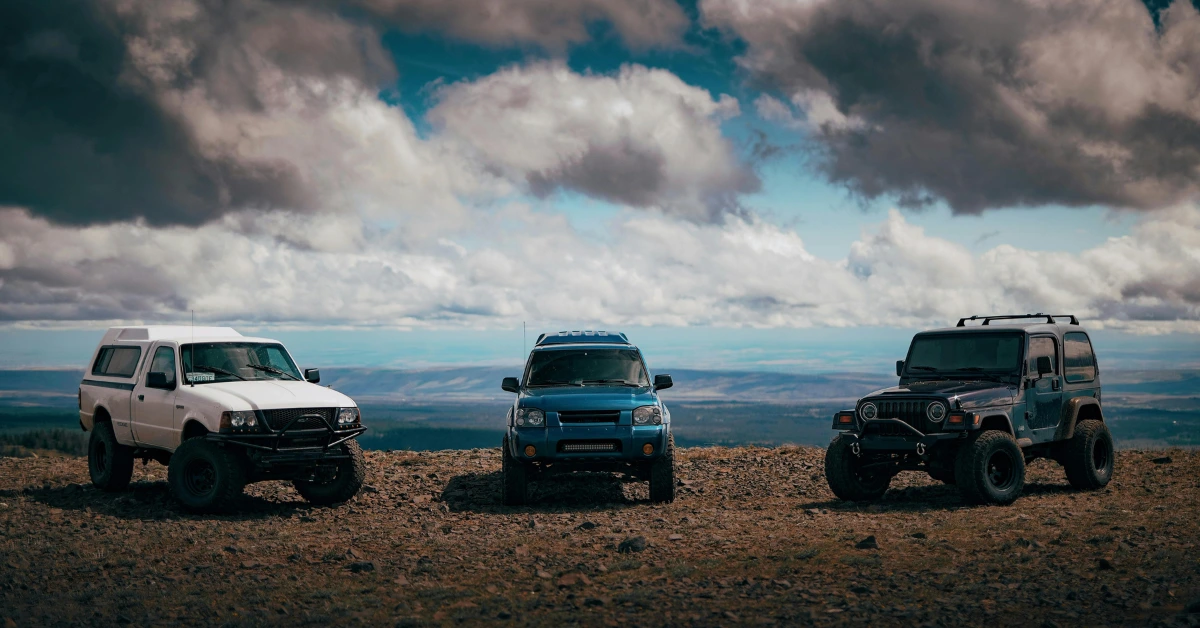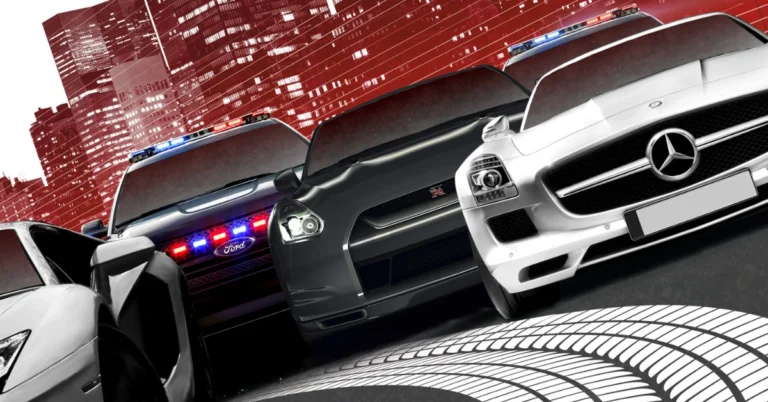Are you looking to take your vehicle off-road?
Then you’ll want to make sure you have the right tires for the job.
All-terrain tires for cars are designed to handle a variety of conditions, from mud and sand to rocky terrain and even snow.

When you have to choose the right all-terrain tires for your car, there are a few factors to consider. First and foremost, you’ll want to make sure the tires are the right size for your vehicle.
You can find this information in your car’s owner’s manual or the tire itself. Additionally, you’ll want to look for tires that offer good traction on a variety of surfaces – some all-terrain tires are better suited for certain conditions than others.
At the end of the day, all-terrain tires for cars are a great investment for anyone who loves to explore the great outdoors. Whether you’re planning a weekend camping trip or just want to take your car off-road for a day.
Upgrade your car’s tires today and start exploring all the amazing off-road Destinations.
Benefits of All-Terrain Tires for Cars
If you’re looking for tires that can handle any driving condition, all-terrain tires might be the right choice for you. These tires are designed to provide versatility, durability, and performance in various conditions.
In this section, we’ll discuss the benefits of all-terrain tires in more detail.
Versatility
One of the biggest benefits of all-terrain tires is their versatility. They are designed to perform well on both off-road and on-road surfaces, making them a great choice for drivers who want a tire that can handle any condition – whether you’re driving on gravel, dirt, mud, or pavement.
Durability
Another benefit of all-terrain tires is their durability. These tires are built to withstand the wear and tear of off-road driving, so they’re less likely to puncture or suffer other damage than regular tires. Additionally, they tend to have a longer lifespan than other types.
Performance in Various Conditions
They have deeper treads than regular tires and also a more aggressive pattern, which provides better traction on slippery surfaces like mud, snow, and ice plus it improves their performance on rough terrain.
Overall, all-terrain tires are a great choice for drivers who want a tire that can handle any driving condition.
Types of All Terrain Tires
When we Look at all-terrain tires for cars, there are a few different types of tread patterns to consider. Each pattern has its own unique features and benefits, so it’s important to choose the right one for your specific needs.
Symmetrical Tread Patterns
Symmetrical tread patterns are the most common type of all-terrain tire. They feature a uniform tread design that allows for even wear and good traction in a variety of conditions. These tires are a great choice for drivers who need a reliable tire that can handle both on and off-road driving.
Asymmetrical Tread Patterns
Asymmetrical tread patterns are designed to provide better handling and performance in specific conditions. These tires feature different tread patterns on the inner and outer sides of the tire, which allows better traction and handling on wet or dry roads. Asymmetrical tires are a good choice for drivers who prioritize performance over versatility.

Directional Tread Patterns
Directional tread patterns are designed for maximum traction in specific conditions. These tires feature a V-shaped tread pattern that is optimized for driving in snow, mud, or other challenging terrain. Directional tires are a great choice for drivers frequently encountering extreme weather or off-road conditions.
No matter what type of all-terrain tire you choose, it’s important to make sure that it’s the right fit for your vehicle and driving needs. We can help you choose the perfect tire for your car and budget.
Factors to Consider When Buying
When it comes to buying all-terrain tires for your car, there are several factors to consider to ensure you get the best tires for your needs.
Next, we’ll discuss some of the most important factors to keep in mind.
Tire Size
The first thing you need to consider when buying all-terrain tires is the size of the tires. You can find the size of your current tires on the sidewall of the tire.
It will be a series of numbers and letters, such as P265/70R17. This information will help you find the right size all-terrain tires for your car.
Tread Life
Another important factor to consider is the tread life. You want to make sure you get tires that will last a long time and provide good traction on a variety of surfaces.
Look for tires with a high treadwear rating, which indicates how long the tire is expected to last.
Load Capacity
Finally, you’ll want to consider the load capacity. This is the maximum weight that the tire can safely support. You’ll need to make sure that it‘s sufficient for your vehicle.
You can find the load capacity on the sidewall of the tire, along with the tire size information.
By keeping these factors in mind when shopping for all-terrain tires, you can ensure that you get the best tires for your car and your needs.
Installation and Maintenance
When it comes to installing all-terrain tires, there are a few things to keep in mind to ensure a smooth and safe process. Here are some tips to follow:

Installation Tips
- Before, Make sure they are the correct size and type for your vehicle. Refer to the owner’s manual or consult a professional if unsure.
- Check the condition of the wheels and rims. Make sure they are clean and free of damage or corrosion.
- When installing, make sure they are properly aligned and balanced. This will help ensure a smooth and comfortable ride and prevent premature wear and tear.
- Use the recommended torque settings when tightening the lug nuts. Tightening them too much or too little can cause damage to the wheels or tires and compromise safety.
- Finally, make sure to properly inflate the tires to the recommended pressure. This information can usually be found on the sidewall of the tire or in the owner’s manual.
Maintenance and Care
Proper maintenance and care are essential for getting the most out of your all-terrain tires. Here are some tips to keep in mind:
- Regularly check the tire pressure and adjust as needed. Underinflated or overinflated tires can cause poor handling, reduced fuel efficiency, and premature wear and tear.
- Inspect the tires regularly for signs of damage or wear, such as cracks, bulges, or punctures. Replace any tires that show signs of damage or have worn down to the tread wear indicators.
- Rotate the tires regularly to ensure even wear and prolong their lifespan. This should be done every 5,000 to 8,000 miles, or as recommended by the manufacturer.
- Keep the tires clean and free of debris. This will help prevent damage and prolong their lifespan. Avoid using harsh chemicals or abrasive materials when cleaning the tires.
- Finally, make sure to have the tires professionally inspected and balanced at least once a year, or as recommended by the manufacturer. This will help ensure optimal performance and safety.
Popular Brands and Models
When it comes to all-terrain tires, there are many different brands and models to choose from. In this section, we will provide an overview of some of the most popular brands and models on the market today.
Brand Overview
BFGoodrich
BFGoodrich is a well-known brand in the tire industry, and their All-Terrain T/A KO2 tire is a popular choice for many drivers. This tire is designed to provide excellent traction on both wet and dry surfaces, as well as in snow and mud. It also features a tough sidewall and is built to resist punctures and other types of damage.
Goodyear
Goodyear is another popular tire brand, and their Wrangler All-Terrain Adventure with Kevlar tire is a great option for those who want a tire that can handle a variety of different terrains. This tire features Kevlar-reinforced sidewalls for added durability, as well as a tread pattern that provides excellent traction on both wet and dry surfaces.
Michelin
Michelin is a brand that is known for producing high-quality tires, and their LTX A/T2 tire is no exception. This tire is designed to provide excellent traction on both wet and dry surfaces, as well as in snow and mud. It also features a durable construction and is built to last.

Model Highlights
Cooper Discoverer AT3 XLT
The Cooper Discoverer AT3 XLT is a great all-terrain tire that is designed to provide excellent traction on a variety of different surfaces.
It features a rugged design and is built to resist punctures and other types of damage. It also provides a smooth and comfortable ride, making it a great choice for those who want a tire that is both durable and comfortable.
General Grabber A/TX
The General Grabber A/TX is a budget-friendly all-terrain tire that is designed to provide excellent traction on both wet and dry surfaces.
It features a tough construction and is built to resist punctures and other types of damage.
Making it a great choice for those who want a tire that is both affordable and reliable.
Toyo Open Country A/T III
The Toyo Open Country A/T III is a great all-terrain tire that is designed to provide excellent traction on a variety of different surfaces.
It features a durable construction and is built to resist punctures and other types of damage. Making it a great choice for those who want a tire that is both durable and comfortable.
Overall, there are many different brands and models of all-terrain tires to choose from. Whether you are looking for a tire that is affordable, durable or provides excellent traction on a variety of different surfaces, there is sure to be a tire out there that meets your needs.
FAQ
Can you put all-terrain tires on a car?
Most all-terrain tires are manufactured for use on trucks, SUVs, and campers, but the market for A/T tires for four-wheel drive cars is growing. Note that if you choose to put A/T tires on your car, you will need to make sure that the tire is a perfect fit for your car.
Are all-terrain tires good for regular driving?
All-terrains will be the best choice if you drive equally on paved roads and off-road surfaces. The main factor to consider while choosing the type of tires for your car is their purpose. If you drive more on the streets and highways, going off-road for minimal periods of time, consider touring tires.
Do all-terrain tires use more fuel?
Consequently, all terrain tires have a greater rolling resistance than their pavement-bound counterparts. They also have a larger effect on fuel economy. The consensus is that on average, all-terrain tires decrease fuel economy by about 3% compared to highway tires.
Do you already enjoy the Freedom of All-Terrain Tires for Cars?
If yes we would love to hear your experiences about Fuel Consumption and driving behavior…send us a Mail or write us in the Comments.
Till then see you next time when it says again…
…Let´s Ride!






